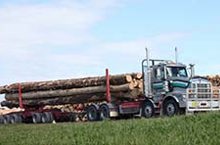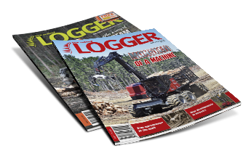
A new tax incentive, “Investment Boost”, that allows businesses to immediately deduct 20% of the costs of new assets (or second-hand assets purchased from overseas) – such as machinery, equipment, tools and buildings – from taxable income on top of the existing depreciation write-offs, came into effect last month. This can also be applied to investments that were started before the 22 May, if they are available for use the first time after that date.
For example, if a mill invested $500,000 in new timber machinery, $100,000 would be immediately deductible. The remaining $400,000 would be depreciated as normal. There is no cap on this allowance.
The announcement was made as part of Budget 2025, with the scheme allowing wood processing and manufacturing businesses to deduct a higher percentage of the cost of eligible assets in the first year of purchase, reducing their tax burden and freeing up capital for further investment.
“Enabling capital investment for new manufacturing technologies and equipment, such as cutting-edge timber machinery and equipment, within the wood processing industry to deduct 20% of the costs of the new asset immediately will provide an added incentive for investment and increased productivity in a sector where government backing is needed” says Wood Processors and Manufacturers Association (WPMA) Chief Executive, Mark Ross.
"It is hoped that this new tax rule will assist in encouraging further investment in value-added wood processing production within New Zealand", he adds. “Increased domestic wood processing will not only provide economic growth in our regions, but will also assist in providing increased sustainable wood fibre production as a pathway to meet our Paris Agreement climate change targets.”
Meanwhile, Forest & Bird says the Government’s lack of investment in New Zealand’s environment in Budget 2025 is deeply concerning given the importance of the environment to our economy and society.
The organisation says New Zealand needs to invest around $2 billion a year to prevent extinctions and restore te taiao. This work is essential to protect more than $133 billion in natural assets that deliver an estimated $11 billion in environmental services and protect the wild places and wildlife that are so important to Kiwis, says Richard Capie, GM Advocacy.
"This Budget misses the mark in recognising just how vital the environment is to our economy and our society. Te taiao nature is on life-support. Seventy-five percent of indigenous species are threatened with extinction or are at risk of becoming threatened with extinction. This matters to New Zealanders. We value our beaches and our forests, our kiwi and our kākāpō. Our unique environment is a deep part of our identity.
“This Government is cutting conservation funding to the bone, and at the same time has introduced policies like fast-track, selling off conservation land, removing freshwater protections and weakening marine protections – of all which undermine environment protections further. Now we can add getting rid of the Nature Heritage Fund – which has protected hundreds of thousands of hectares of land – to this list. We can and should be doing better.”










